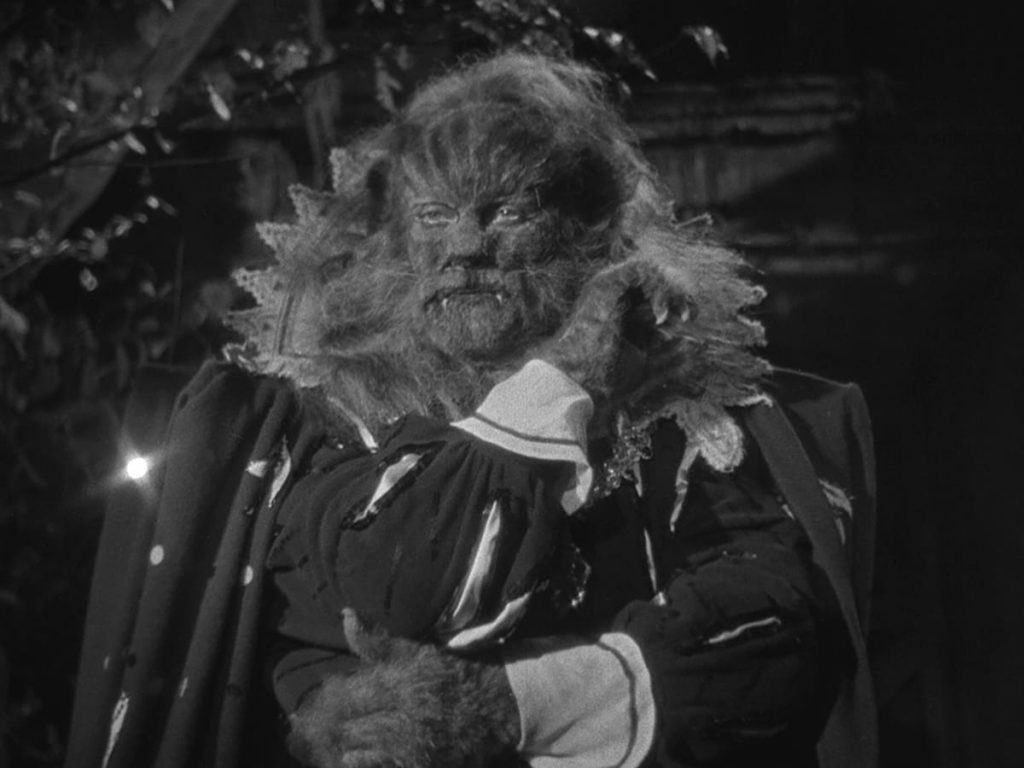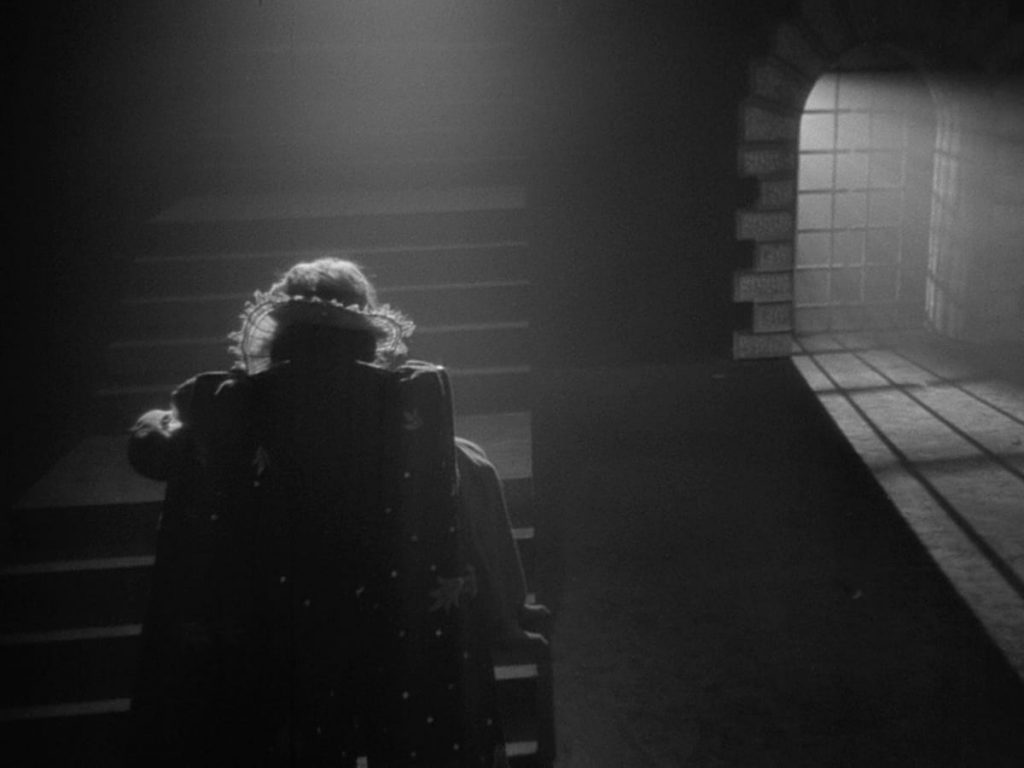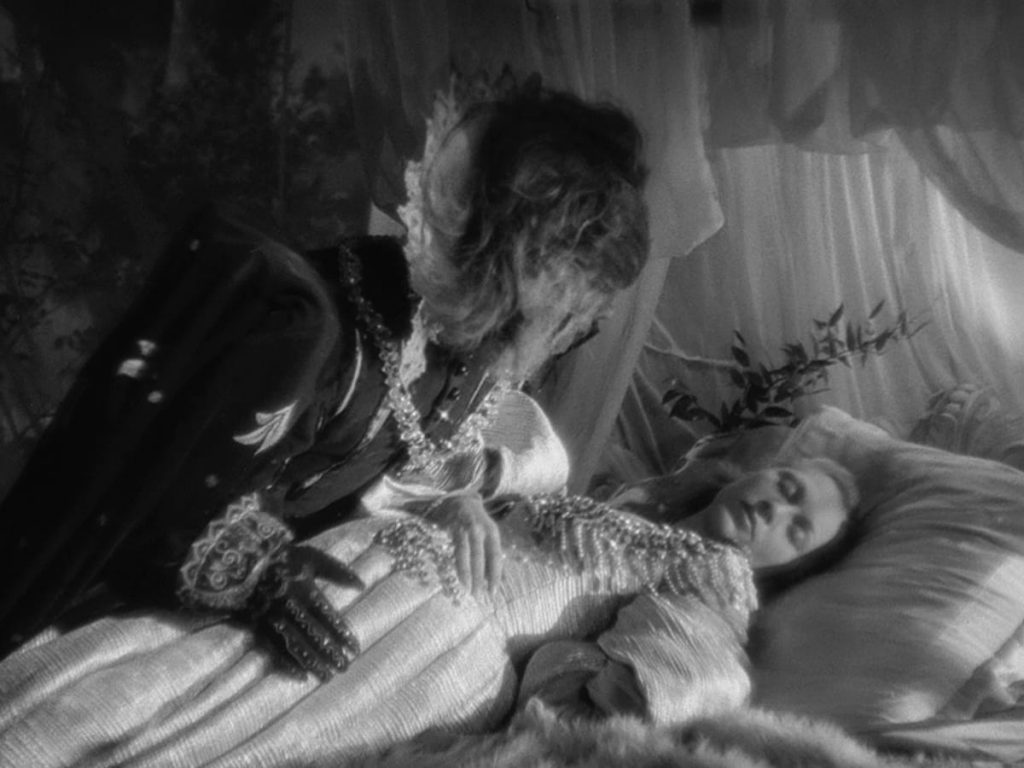Film Review: Beauty and the Beast (1946)



Something that’s always struck me about the fairy tales we all grew up with is how terribly negligent the parents always are. Even the watered-down Disney versions regularly feature some form of child abandonment, forced child labor, and maybe, for good measure, some child psychological torture and murder thrown in as well. This is because, when broken down to their basic parts, fairy tales rarely tell pleasant stories, regardless of any shiny veneer they’ve been given. They are brutal endeavors, full of paranoid, old-world folklore in which disobedient children are sold to witches and obscene creatures for a mere pittance. Fancy animation and catchy Oscar-winning songs can’t mask the cruelty behind these stories, nor should they. Fairy tales can be beautiful, magical fables in which justice eventually prevails and many wrongs are righted, but the path taken to retribution (not to mention the retribution itself) is often among the most savage and remorseless there is.

None of this was lost on Jean Cocteau when making his 1946 version of Beauty and the Beast. The French poet, artist, and filmmaker seemed keenly aware of the original story’s barbarity, but instead of glossing it over with song and dance, decided instead to address it through some of the most beautiful and ethereal Freudian symbolism ever committed to film. Watch as Belle (Josette Day) ecstatically glides through the hallways of the Beast’s castle, or how she shakes and trembles as he approaches. Does she pick up that knife out of fear? Or perhaps the knife represents something else all together? Listen to the language used between Belle and her Beast (Jean Marais, who doubles as the contemptible Avenant), and watch as the latter’s hands smoke after he disgracefully fulfills his bestial cravings. Cocteau has supplied us with such an irresistible amount of metaphor to wade through that the story very nearly becomes secondary to the eloquence of its allegory, and more than makes up for the film’s occasional slides towards the melodramatic.

The story is familiar, but the execution is straight from the mind of a brilliant visionary artist. Cocteau’s combined use of ground-breaking make-up, innovative camera techniques, and old-school stage trickery is a wondrous sight to behold. The visual magic that exists inside the Beast’s dwelling rivals anything Walt Disney Studios has produced before or since, no matter how many clocks and tea cups welcome us in. But beneath Cocteau’s mesmerizing enchantment lies a dark menace and mystery that has no rival among other tellings. Where others fully romanticize the story while glossing over its darker aspects, Cocteau embraces its darkness and romanticizes it, making for what often feels like a dream on the verge of a nightmare. Contrary to other approaches, Cocteau’s Beast is not just a monster on the outside, as slyly demonstrated with plenty of visual panache. No, his Beast remains on the verge of succumbing to his animalistic instincts, with murder and even cannibalism seemingly only moments away at any time. In addition to high-minded lessons about outward appearances and whatnot, could Cocteau be asserting that a man (any man) is capable of beastly behavior because men are inherently beastly creatures? I can’t say for certain, but I do know that Cocteau’s Beauty and the Beast is far from the moralistic ugly duckling tale we’ve grown accustomed to, and far more artistically appealing as well.
France • 1946 • 93 minutes • Black & White • 1.33:1 • French • Spine #6
Criterion Special Features Include
- New, high-definition digital transfer from restored film elements, with uncompressed monaural soundtrack on the Blu-ray edition
- Philip Glass’s opera La Belle et la Bête, as an alternate soundtrack, presented in 5.1 DTS-HD Master Audio on the Blu-ray edition
- Two commentaries: one by film historian Arthur Knight and one by writer and cultural historian Sir Christopher Frayling
- Screening at the Majestic, a 1995 documentary featuring interviews with cast and crew
- Interview with cinematographer Henri Alekan
- Rare behind-the-scenes photos and publicity stills
- Film restoration demonstration
- Original trailer, directed and narrated by Jean Cocteau, and the 1995 restoration trailer
- New and improved English subtitle translation
- PLUS: An essay by film critic Geoffrey O’Brien and, for the Blu-ray edition, a 1947 piece on the film by Cocteau, excerpts from Francis Steegmuller’s 1970 Cocteau: A Biography, and an introduction to Glass’s opera by the composer
